LUX ÆTERNA (2019)
Two actresses, Béatrice Dalle and Charlotte Gainsbourg, are on a film set telling stories about witches.
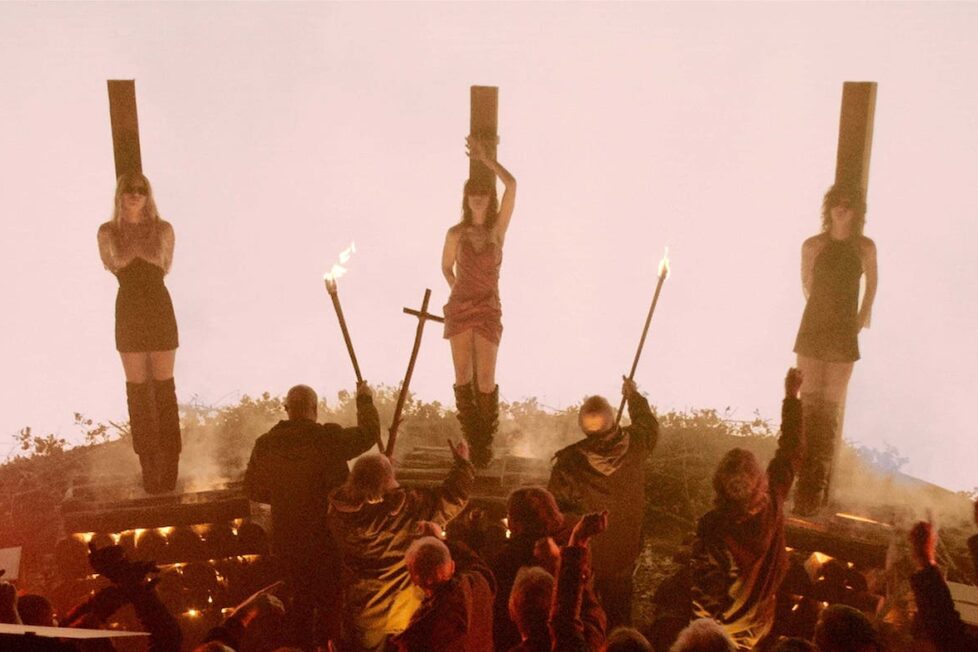
Two actresses, Béatrice Dalle and Charlotte Gainsbourg, are on a film set telling stories about witches.


In a cinematic environment that feels increasingly stale and safe, something new (or at least new to us Brits) from Gaspar Noé—the France-based provocateur behind the incendiary likes of Irréversible (2002), Enter the Void (2009), and Climax (2018)—is always welcome. But Lux Æterna—one of two experimental shorts he made before his latest full-length feature, Vortex (2021)—is a strange, knotty beast that takes three or four views to properly appreciate.
Shot in five days and heavily improvised from a “screenplay” only five lines long, it came about when Anthony Vaccarello, the creative director of Yves Saint-Laurent, approached Noé to make a film with the French fashion house providing the funding. Béatrice Dalle (Betty Blue) and Charlotte Gainsbourg (Antichrist) were already on board, and the resulting 51-minute project was originally screened out of competition at Cannes in 2019. It’s a horror film, an advertisement for a chic fashion label, a film within a film, and more besides.
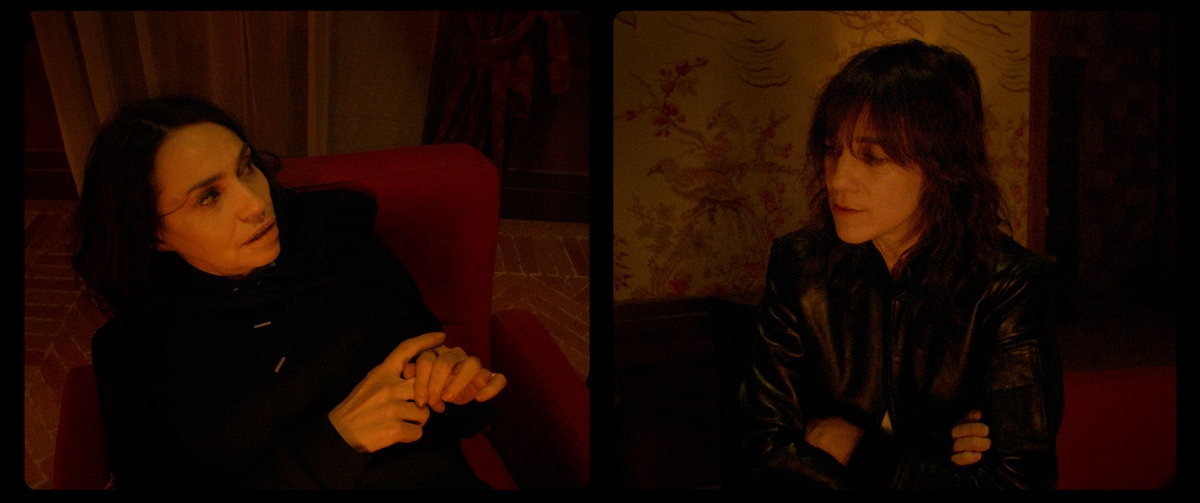
The set-up is simple: Dalle and Gainsbourg play themselves (well, versions of themselves) backstage at a shoot for God’s Craft, a schlocky horror film about medieval witch trials that is to be the former’s directorial debut. Much of the first 15-minutes is taken up with these women swapping war stories about nude scenes, difficult shoots, and various industry “pricks”, the garrulous but entertaining Dalle doing most of the talking. Although the pair are sat close to each other, they are presented via split-screen, a technique Noé utilises throughout the film, often to show us two completely different scenes at once. But all is not well on the set of God’s Craft and pretty soon a collision of fevered egos, bothersome hangers-on, and serious technical difficulties, caused by a lightning strike, plunges the production into chaos.
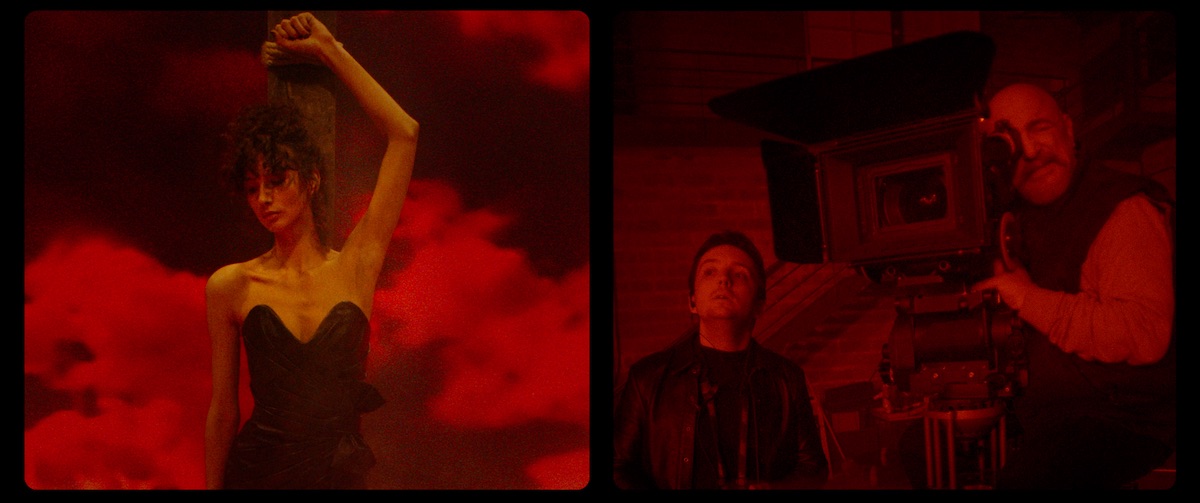
Seemingly made as a response to the initial failure of France’s version of the #MeToo movement, Lux Æterna’s central idea is that the witch hunts of the Middle Ages have echoes in the misogyny and abuse female actors suffer in the film industry (at one point, Dalle says of the roles open to her and other women: “Either you’ve been a beauty queen, or you’re burnt as a witch”, but it’s clear her comment has a more general application, too). To underline that notion, Noé includes footage from classic witch-trial movies Häxan: Witchcraft Through the Ages (1922) and Day of Wrath (1943). Horrifying images of genuine torture implements and an elderly woman on a ladder being pushed from a great height into a bonfire are hardly subtle but, as metaphors go, undeniably powerful.
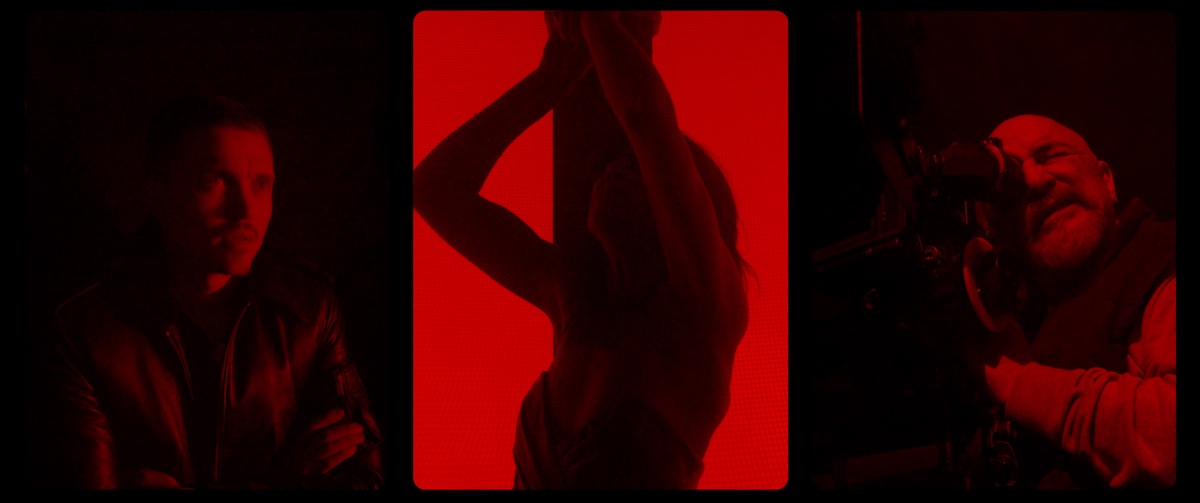
Filmmaking might not involve actual torture or “sexocide” (as Dalle calls the large-scale murder of women on charges of witchcraft), but it’s easy to see what Noé is driving at here. Gainsbourg and Dalle, as well as Australian actor/model Abbey Lee (Mad Max: Fury Road), are constantly pestered by people who shouldn’t even be on the set—an intense, pushy guy from Los Angeles trying to recruit them for his movie project, and a creepy magazine journalist requesting “information” on the film he could surely get elsewhere. Lee complains about being made to go topless in the film—something she hadn’t agreed to—and there’s seemingly no privacy, as a set photographer suddenly lurks at the window when she is in a state of undress. Worse still, the film’s producer and director of photography are conspiring to get Dalle fired. Even heavy-hitters like Dalle and Gainsbourg are afforded little respect or agency. They work and exist in an atmosphere where a parade of persistent, pain-in-the-arse men (mostly) either want something from them or are trying their best to undermine or cheapen them. Often all at the same time.
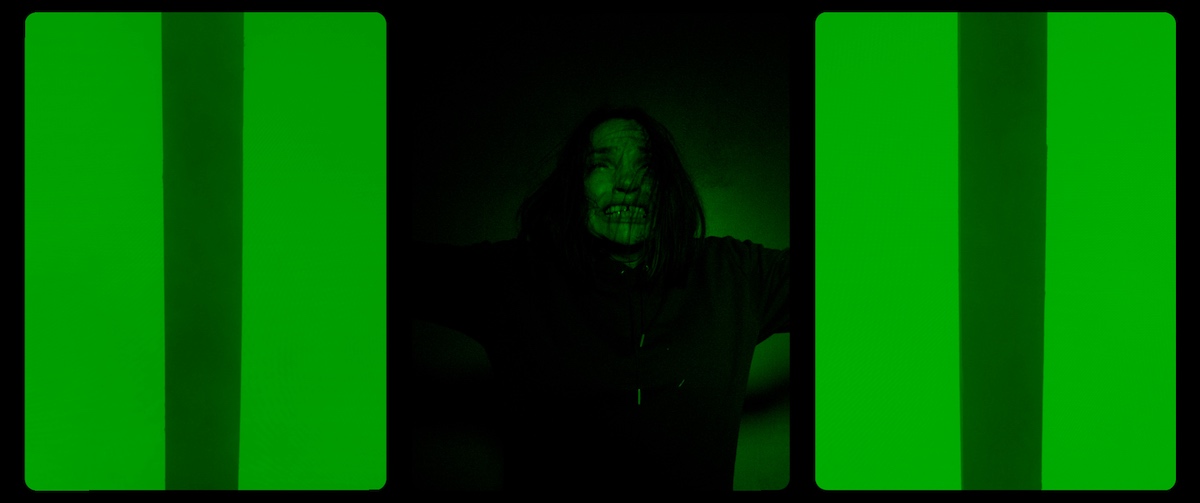
If there’s a problem, it’s that these versions of Dalle and Gainsbourg aren’t always sympathetic. Dalle clumps about backstage like a grumpy, black-clad Godzilla, barking orders and insults seemingly at anyone unlucky enough to cross her path, while Gainsbourg is semi-detached; choosing the exact moment she is being escorted onto the set to make a phone call and snapping at a lowly hairstylist only trying to do his job. Apparently, you should never be mean to acting royalty or make their working lives difficult, but those—male and female—lower down the pay scale are fair game. To give him the benefit of the doubt, perhaps the point Noé is trying to make is that the creation of art is messy and, yes, torturous for all involved. The inclusion of a quote from late, great German director Rainer Werner Fassbinder (Ali: Fear Eats the Soul)—“When the pressure gets too strong, I turn into a dictator”—only serves to back up the idea that film sets are often little more than war zones without the heavy artillery.
Noé builds to a spectacular finale of haute couture-clad witches on crosses and 1980s music video bombast as God’s Craft falls apart in a riot of strobing, squalling madness that sufferers of photo-sensitive epilepsy should give as wide a berth as possible. For the rest of us, what already looks and sounds dazzling on a decent-sized television would, I suspect, be genuinely spectacular on the big screen. An IMAX showing may well cause your head to explode.
FRANCE | 2019 | 51 MINS | 1.33:1 • 2.35:1 | COLOUR | FRENCH • ENGLISH • DANISH


writer & director: Gaspar Noé.
starring: Béatrice Dalle, Charlotte Gainsbourg & Abbey Lee.
